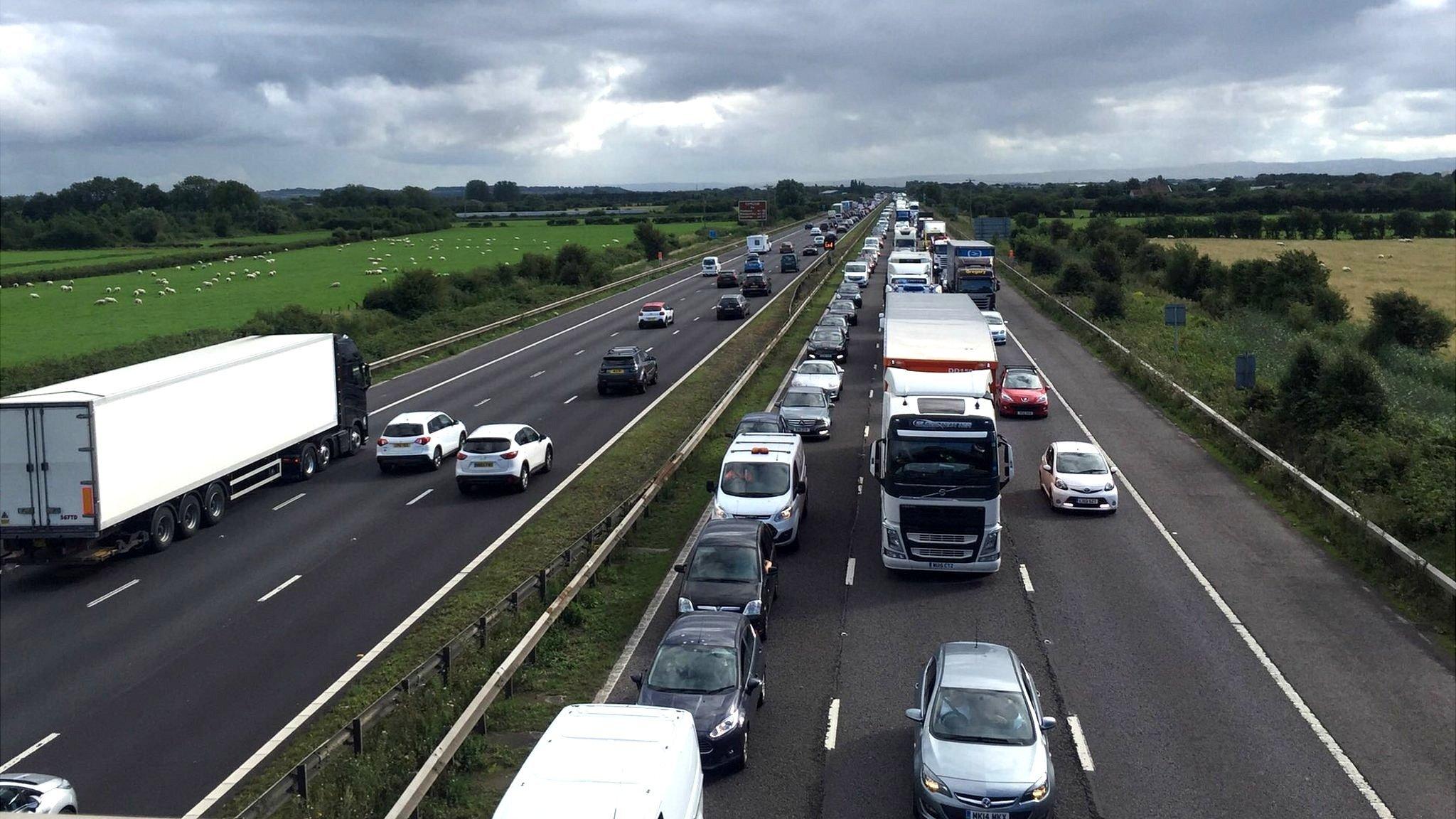UK must tackle 'astonishing' cost of congestion, study says
- Published
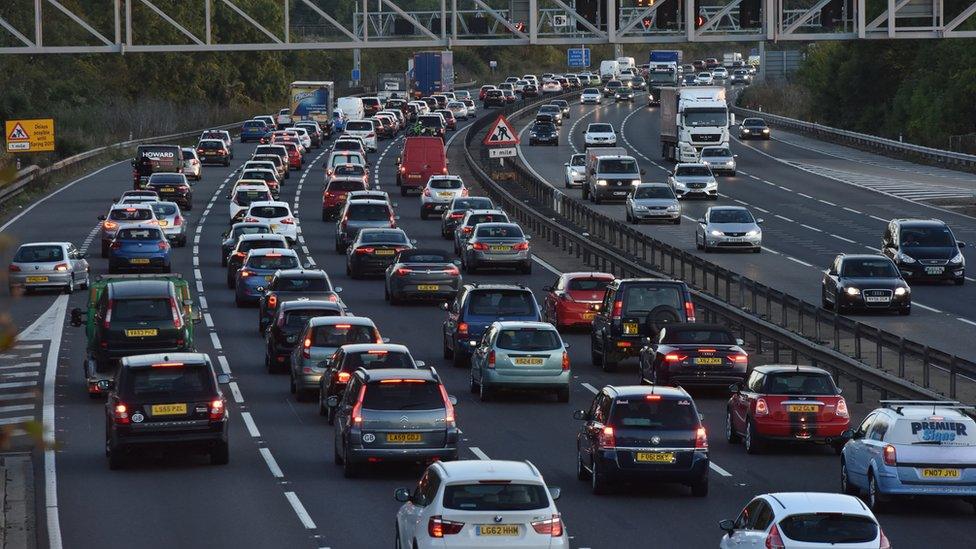
UK drivers wasted an average of 31 hours in rush-hour traffic last year, costing each motorist £1,168, a study by traffic data firm Inrix suggests.
The UK is the world's 10th most congested country and London is Europe's second most gridlocked city after Moscow.
Manchester, Birmingham, Luton and Edinburgh completed the UK's top five major areas affected.
The government said a record £23bn was being invested in road schemes.
The study - which took into account direct costs such as wasted fuel and time, as well as indirect consequences, such as higher prices for household goods due to increased freight fees - found London drivers spent an average of 74 hours in gridlock last year, at a cost of £2,430.
The worst stretch of road was the A406 outer London ring road from Chiswick roundabout to Hanger Lane during the evening rush hour.
Inrix chief economist Dr Graham Cookson called for innovative approaches to deal with the "astonishing" cost of congestion that took "billions out of the economy".
He said flexible working hours and road charges "have potential", but said transport authorities should be looking at data analytics and artificial intelligence that "promise to reinvent our approach to traffic management".
Inrix ranked most congested areas using the financial cost of congestion, as well as hours wasted.
But a top 10 list of hours wasted in congestion includes towns like Braintree in Essex, and Bath in Somerset.
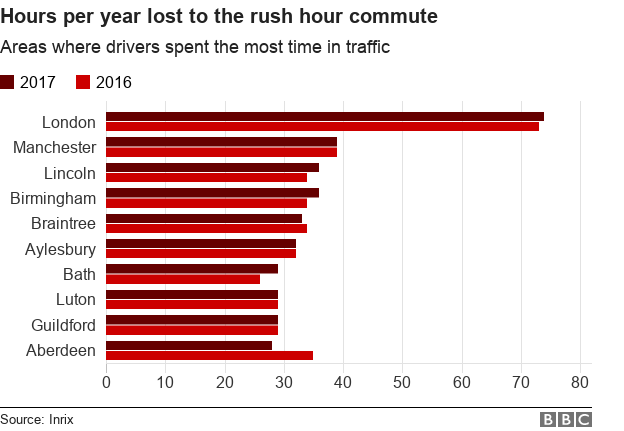
In England, drivers in Lincoln lost an average of 36 hours to the rush hour commute, the same as drivers in Birmingham.
It is hoped that a new £92m bypass will help cut congestion in the cathedral city.
Seven UK locations suffered double-digit rises in the number of hours lost to queues, including Wrexham (up 17%) Mansfield (up 15%) and Bath (up 12%).
In Wales, Newport ranked as the most congested city in the country, with drivers losing an average of 24 hours a year in traffic jams.
Drivers in Cardiff are thought to lose an average of £1,119 in lost time and fuel.
Despite the scale of the congestion problem, three of Scotland's big cities saw major improvements in traffic flow following heavy investment in road infrastructure.
The completion of road projects on the M8, M73 and M74 in central Scotland helped ease congestion by 20% in Aberdeen, 15% in Glasgow and 10% in Edinburgh.
"Journeys have got better because of the combination of new roads and the end of roadworks," Dr Cookson added.
The Department for Transport said that alongside its national road investment, councils were to receive more than £7.1bn in funding by 2021.
A spokeswoman said this "record amount" of funding would "help to upgrade and maintain local roads up and down the country".
"Alongside this, we've announced plans for a new major road network that will give councils access to a multi-billion pound fund to improve or replace the most important A-roads in their area," she added.
- Published30 December 2017
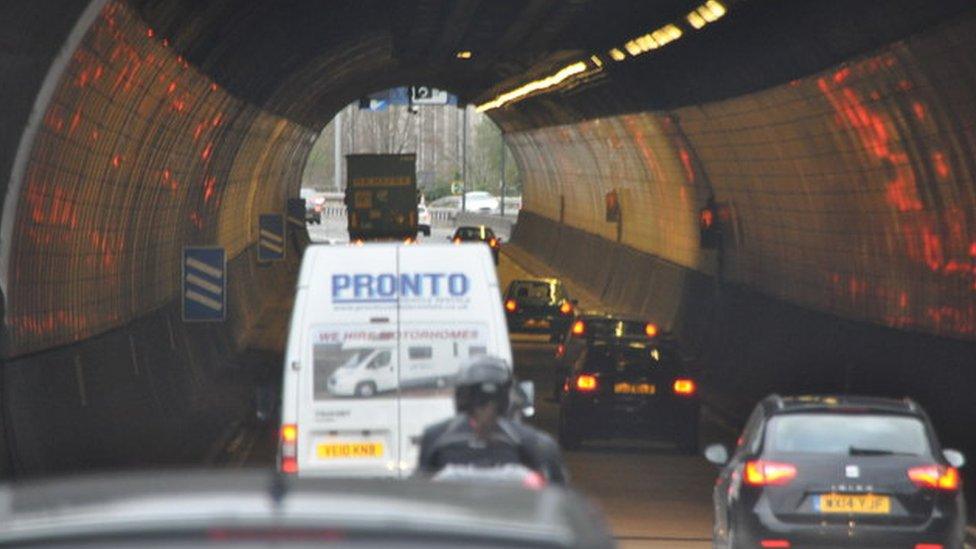
- Published26 July 2017
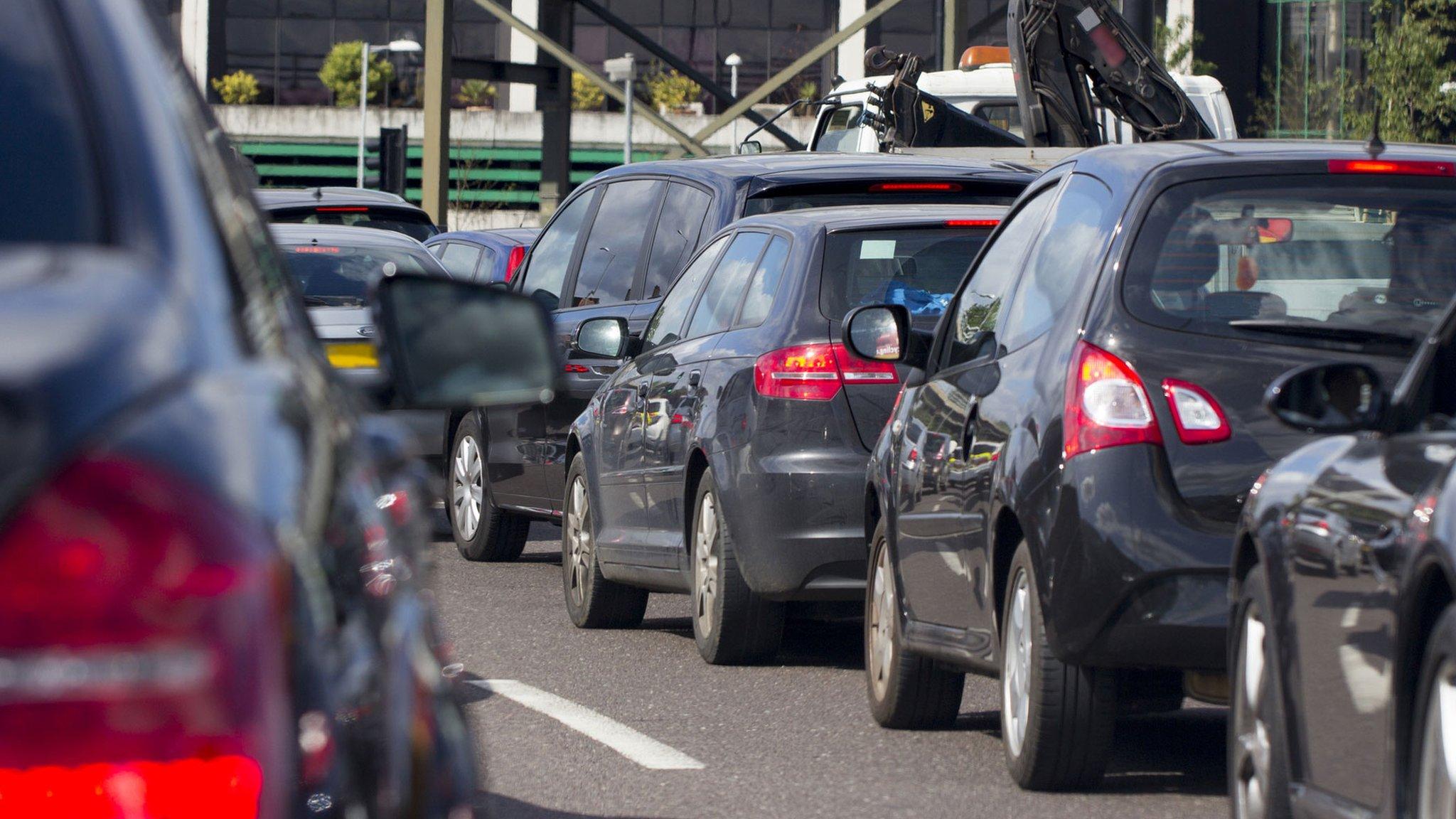
- Published18 October 2017
